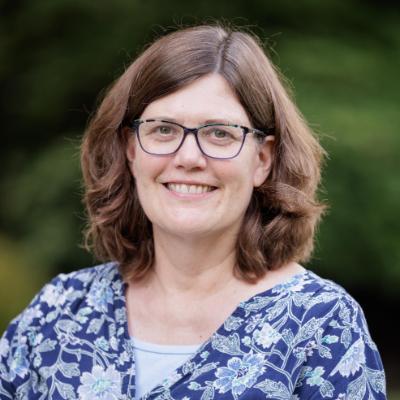Kristine J. Hardeman
Associate Teaching Professor of Biology and Botany
Joined Connecticut College: 2007
Education
Ph.D., University of Oregon
Genetics
Plant biotechnology
Kristine Hardeman teaches cells labs, genetics labs and preparation. She also teaches a seminar on genetically modified crops.
After receiving her Ph.D., she was actively involved in research in plant molecular biology both in academic labs and in the agricultural industry for many years. She studied pollen and embryo development in maize, carried out gene mapping in tomatoes and worked on making drought tolerant corn.
Some of her recent publications:
- Oh, K-C, K. Hardeman, M.G. Ivanchenko, M. Ellard-Ivey, A. Negenfuhr, T.J. White and T.L. Lomax (2002). Fine mapping in tomato using microsynteny with the genome: The Diageotropica (Dgt) locus. Genome Biol. 3(9):0049.1-0049.11.
- Singh, M. P.E. Lewis, K. Hardeman, L. Bai, J.K.C. Rose. M. Mazourek, P. Chomet and T.P. Brutnell (2003), Activator Mutagenesis of the Pink scutellum1/viviparous7 Locus of Maize. The Plant Cell, 15:874-884.
- Kolkman, J.M., L.J. Conrad, P.R. Farmer, K. Hardeman, K.R. Ahern, P.E. Lewis, R.J.H. Sawers, S. Lebejko, P. Chomet and T.P. Brutnell (2005). Distribution of Activator (Ac) throughout the Maize Genome for Use in Regional Mutagenesis. Genetics, 169: 981-995.Williams, P., K. Hardeman, J. Fowler and C. Rivin (2006) Divergence of duplicated genes in maize: evolution of contrasting targeting information for enzymes in the porphyrin pathway. The Plant Journal, 45: 727-739.
Hardeman serves as a faculty adviser for first-year students.
She is a member of the Association for Biology Laboratory Education.
Visit the botany and biology department websites.
Contact Kristine J. Hardeman
Mailing Address
Kristine J. Hardeman
Connecticut College
Box # BIOLOGY/New London Hall
270 Mohegan Ave.
New London, CT 06320
Office
310 Olin Science Center
